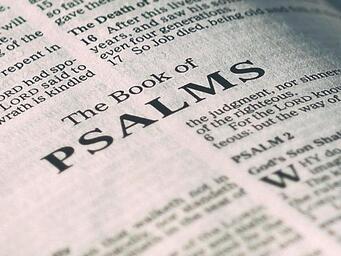|
By WCS Headmaster, Dr. Roger Erdvig
In 1453, Constantinople—the hub of eastern Christianity—fell to the Ottoman Empire. After decades of spiritual and cultural decay, Constantinople did not have the internal resources to resist the enemy, and invaders overran the city. Thankfully, hundreds of scholars with keen foresight escaped to Europe with copies of ancient Greek manuscripts in tow. These brave academics knew that with the fall of the Christian culture around them, someone had to preserve the New Testament. Out of wreckage from the collapse of their earthly city, a remnant saw the importance of Scripture, and they committed their lives to preserving God’s Word, even at high personal cost. Their battle cry in the new war to be faithful to Scripture was “Back to the sources!” At the same time the Bible was being preserved and protected by scholars from Constantinople, it was also on the verge of explosive worldwide influence. In the very same year, something else happened which would spark widespread commitment to Scripture. While the gates of Constantinople burned, a little-known craftsman in Germany perfected a new invention—the printing press. And his first work? The Gutenberg Bible—the first fully printed book in the West. Before this time, Bibles were copied by hand, and only the wealthiest cathedrals of Christendom had copies. With the printing press, the Bible began a rapid journey around the globe, making God’s Word accessible to millions.  By WCS Headmaster Dr. Roger Erdvig In our Thanksgiving chapel, I shared a message from Psalm 9:1-2. In this short text, David helps us to grasp the power of gratitude to transform difficult situations into something good. King David’s message to us is consistent with a core truth of the Christian worldview—through our humble acknowledgment of God’s sovereignty (gratitude), hard times are redeemed for Kingdom purposes. What is perhaps not as familiar to us is the subtitle to Psalm 9. In the intro to the Psalm, we learn that it was addressed to the Director of Music, which means that David intended for this Psalm to be used in worship settings as a song. It’s as if your pastor wrote a brand-new worship song and emailed it to your worship director for use in next Sunday’s service. So far so good… But in addition to the lyrics, the songster David also included the tune for the new song. In the text notes, we discover that David intended Psalm 9 to be sung to a tune that the Music Director would already know: “The Death of the Son.” Really??? If I was the Music Director, I’d be shooting off a quick return email to David to make sure he knew what he was doing. Why pair a joyful, victorious song with a gloomy tune that we only use at funerals? While we do not have preserved for us what “The Death of the Son” sounds like, I’m pretty sure it’s not a happy tune. |
Cultivating godly influencersWilmington Christian School provides a distinctively Christian, innovative education that effectively develops Godly influencers who are well prepared for life after high school and who impact the culture for Christ. Archives
May 2024
Categories
All
|
|
Wilmington Christian School provides a distinctively Christian, innovative education that effectively develops Godly influencers who are well prepared for life after high school and who impact the culture for Christ.
Wilmington Christian School admits students of any race, color, national and ethnic origin to all the rights, privileges, programs, and activities generally accorded or made available to students at the school. It does not discriminate on the basis of race, color, national and ethnic origin in administration of its educational policies, admissions policies, scholarship and loan programs, and athletic and other school-administered programs. |
|
|
© Copyright Wilmington Christian School. All Rights Reserved.
Website designed by PROSPER Creative Design
Website designed by PROSPER Creative Design


